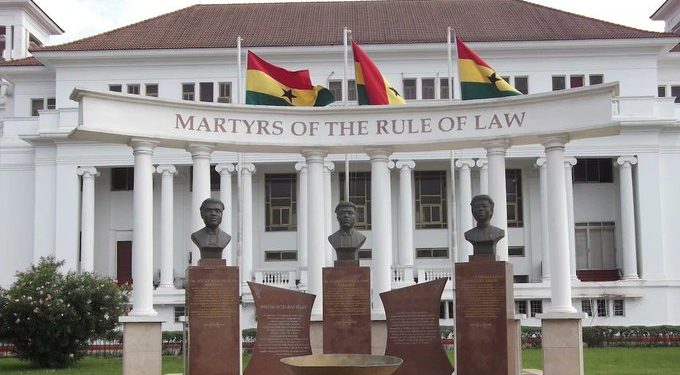The Supreme Court has, by a majority 6-1 decision, declared the provisions of the Citizenship Act, 2000 (ACT 581), which prohibits a person with dual citizenship from becoming a Chief Justice, unconstitutional.
The apex Court’s judgement also applies to the positions of Commissioner of Value Added Tax Service, Director-General, Prisons Service, Chief Fire Officer, Chief Director of a Ministry or a rank of Colonel in the Army, or other security services.
The 6-1 majority decision effectively nullified the said sections for being inconsistent with Article 289(2) of the 1992 Constitution.
The Supreme Court held as unconstitutional sections 16(2)(a) and 16(2)(h)-(l) of the Citizenship Act 2000 (Act 591).
It said the sections breached Article 289(2) of the 1992 Constitution, which states that the constitution shall not be amended or altered by an Act of Parliament.
On Wednesday, April 24, 2024, the Apex court, in its judgment, nullified the said sections of the Citizenship Act in the case titled ‘Francis Osei-Bonsu v The Attorney General, whose suit is numbered J1/16/2023.’
The Plaintiff, through his lawyer Bright Okyere-Adjekum Esq., was of the view that the said sections now nullified by the Supreme Court impliedly amended the 1992 Constitution of the Republic of Ghana and thus injured Article 289(2) of the Constitution.
The effect of the decision is that persons who are dual citizens contrary to the dictates of section 16 of the Citizenship Act can now be appointed to positions or offices.
They include;
1. Chief Justice,
2. Commissioner of the Value Added Tax Service;
3. Director-General of the Prisons Service, the Chief Fire Officer,
4. a Chief Director of a Ministry the rank of a Colonel in the Army or its equivalent in the other security services.
source: Ghana Web


















































